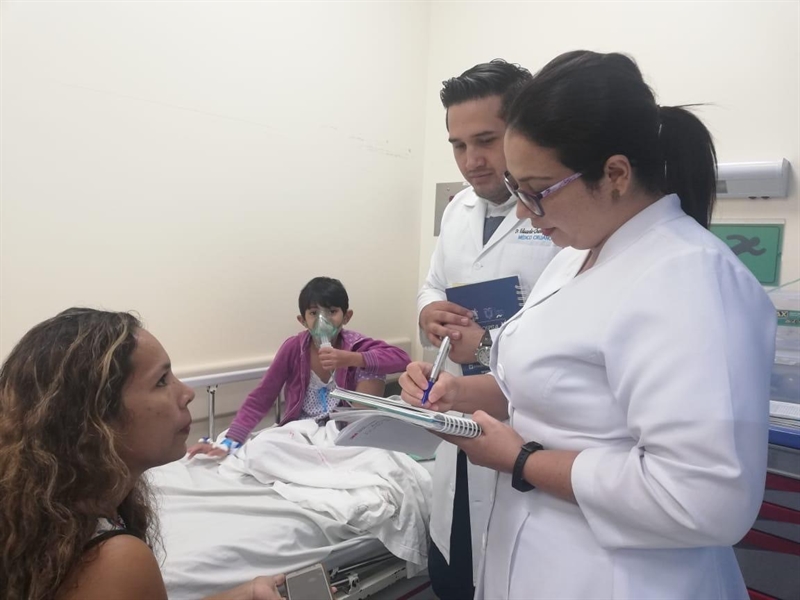This article is part of a series of research impact stories related to our REF 2014 submission.
Programs in Latin America led by Professor Philip Cooper aim to improve management and access to essential asthma medications to prevent life-threatening asthma attacks.
Asthma is a chronic lung disease affecting 235 million people worldwide. When a person has an asthma attack, their airways narrow, making it difficult to breathe. In the worst cases, this can be fatal, and hundreds of thousands of people around the world lose their lives to asthma every year.
Pollution and excessive hygiene may increase the risk of children developing asthma, and the condition typically occurs in people living in cities. But as urban populations grow in low- and middle-income countries, so does the number of people suffering from asthma.
Asthma accounts for more than 350 000 deaths globally each year, 80% of them in low- and middle-income countries
Treatments such as inhaled steroids help to prevent asthma attacks and reduce asthma-related deaths. Unfortunately, despite rapidly growing rates, many countries still do not have national plans in place to treat asthma appropriately.
 Doctors working with the mother of a child with asthma.
Doctors working with the mother of a child with asthma.
‘Most people with asthma living in poverty in low and middle-income countries go to the emergency room when they have an attack. They receive treatment and their symptoms improve, but then they leave without any medications or follow-up. There is no long-term management to control asthma attacks, leading to high rates of recurrence,’ says St George’s Professor Philip Cooper, who leads this asthma research programme in Latin America together with Professor Alvaro Cruz, a pulmonologist at the Federal University of Bahia in Salvador, Brazil.
To prevent asthma attacks, patients need access to medications including inhaled steroids. However, the limited availability of drugs and healthcare in poor areas mean that people often suffer from recurrent asthma attacks, which can eventually be deadly.
Cooper and his collaborators at the International University in Quito in Ecuador and the Federal University of Bahia in Salvador, Barzil, are setting up programs funded by the National Institute for Health Research to improve asthma management and access to asthma medications.
‘We identify people that go to the emergency room with an asthma attack, and we make sure they get a referral to a clinical team that has received training in asthma management following international and local guidelines. They also receive free medications to take home,’ he explains. ‘We hope that by providing simple but effective interventions, we can reduce the recurrence of asthma attacks and save lives.